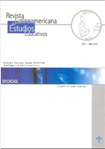Authors
Abstract
The biomedical sciences establish the conceptual theoretical and practical frame of the clinical areas in the Medicine Programs of the Universities. In spite of their location in the first periods of the career, the different aspects of their teaching and learning influence the basic conditions that will determine the quality of the program and of the University. In Colombia this quality corresponds to processes of external evaluation as an answer to the public policies through the execution of minimum conditions and accreditation. However, the quality goes beyond the official demand, professors, students and administrative personnel need to meditate on the actions and activities that they carry out, not only declaratively, but also in procedurally. This reflection exercise can be seen in an analogical way through the concept of “true insight”, used in Medicine, which will allow the detection of necessary changes and the establishment of improvement plans. When the professor and the student possess the “true insight”, they are conscious of the importance of the didactics of biomedical sciences, they become interested in knowing their different aspects and they try to look for solutions to the difficulties that are generated day by day, that is to say, they possess “intellectual and emotional insight”. However, other people can make total or partial negation of the didactics of biomedical sciences, what would be considered as insight variations. In this case, strategies could be generated so that these people can acquire the insight progressively toward the defined situation as the didactics of biomedical sciences, which would lead to the appropriation of its theoretical and practical quality.
References
Colombia. Ministerio De Salud, Programa De Apoyo a la Reforma De Salud. Unión Temporal ASCOFAME – ASSALUD – AUPHA – CES. Análisis de las encuestas realizadas a programas formadores y de entrenamiento del recurso humano en salud, sobre los aspectos académicos y el proceso de autoevaluación y acreditación. Santafé de Bogotá. (2000).
Colombia. Ley 30 de 1992, por la cual se organiza el servicio público de educación superior. Disponible en: www.mineducación.gov.co
Colombia. Ley 115 de 1994, por la cual se expide la Ley General de Educación. Disponible en: wwww.mineducación.gov.co
Colombia. Ley 100 de 1993, por la cual se establece el Sistema General de Seguridad Social en Salud de Colombia. Artículo 247. Disponible en: www.mineducación.gov.co
Colombia. Decreto 2566 de 2003, por el cual se establecen las condiciones mínimas de calidad de los programas de pregrado. Disponible en: www.mineducación.gov.co
Colombia. Decreto 00003 de 2003, por el cual se adoptaron los criterios de evaluación y verificación de los convenios docente-asistenciales necesarios para desarrollar dichos programas. Disponible en: www.mineducación.gov.co
Colombia. Resolución 2772 de 2003, por la cual se definieron las características específicas de calidad para los programas de pregrado en Ciencias de la Salud. Disponible en: www.mineducación.gov.co
Kaplan, Harold, SADOCK, Benjamín. (1998) Tratado de Psiquiatría.. Buenos Aires: Inter-Médica.
Martínez Boom, Alberto. (2004) De la escuela expansiva a la escuela competitiva. Dos modos de modernización en América Latina. Barcelona, Bogotá: Anthropos. p. 402.
Matthews, Michael. (1994) Science Teaching. The role of History and Philosophy of science. New York, London: Routledge. 286p.
Organización Panamericana De La Salud, Organización Mundial De La Salud. (1990) Enseñanza de las Ciencias de la Salud en América Latina, Washington D.C.
Porlán, Rafael, García, Eduardo y Cañal, Pedro. (1995) Constructivismo y enseñanza de las ciencias. Sevilla: Díada Editora S.L. 201p.
Tamayo, Óscar Eugenio. (2003) Caracterización general de la didáctica de las ciencias. Programa de Maestría en Educación y Desarrollo Humano. Manizales: CINDE/Universidad de Manizales.
Wellington, Jerry. (1994)Teaching and Learning Secondary Science. London and New York: Routledge. 276p.

 PDF (Español)
PDF (Español)
 FLIP
FLIP



















